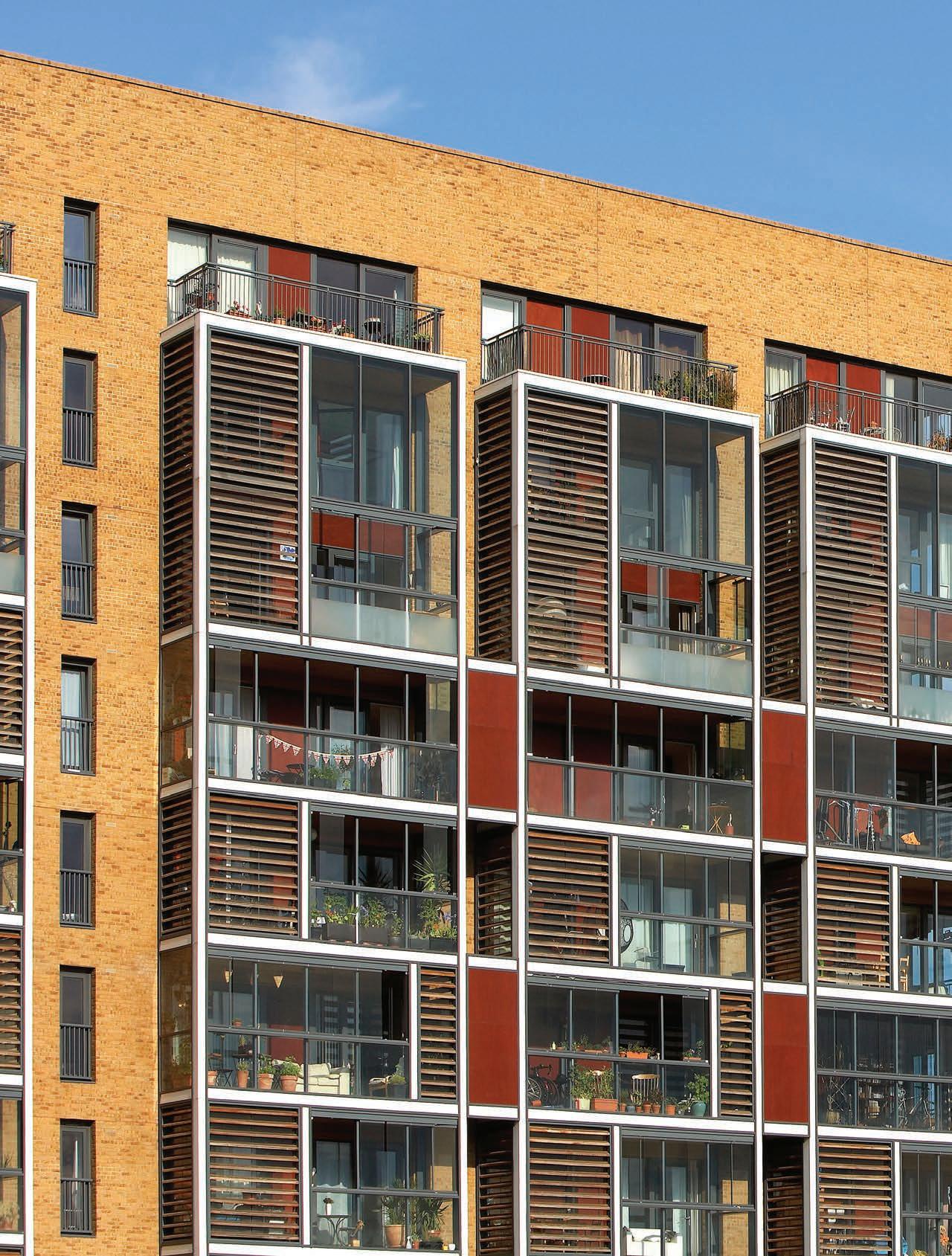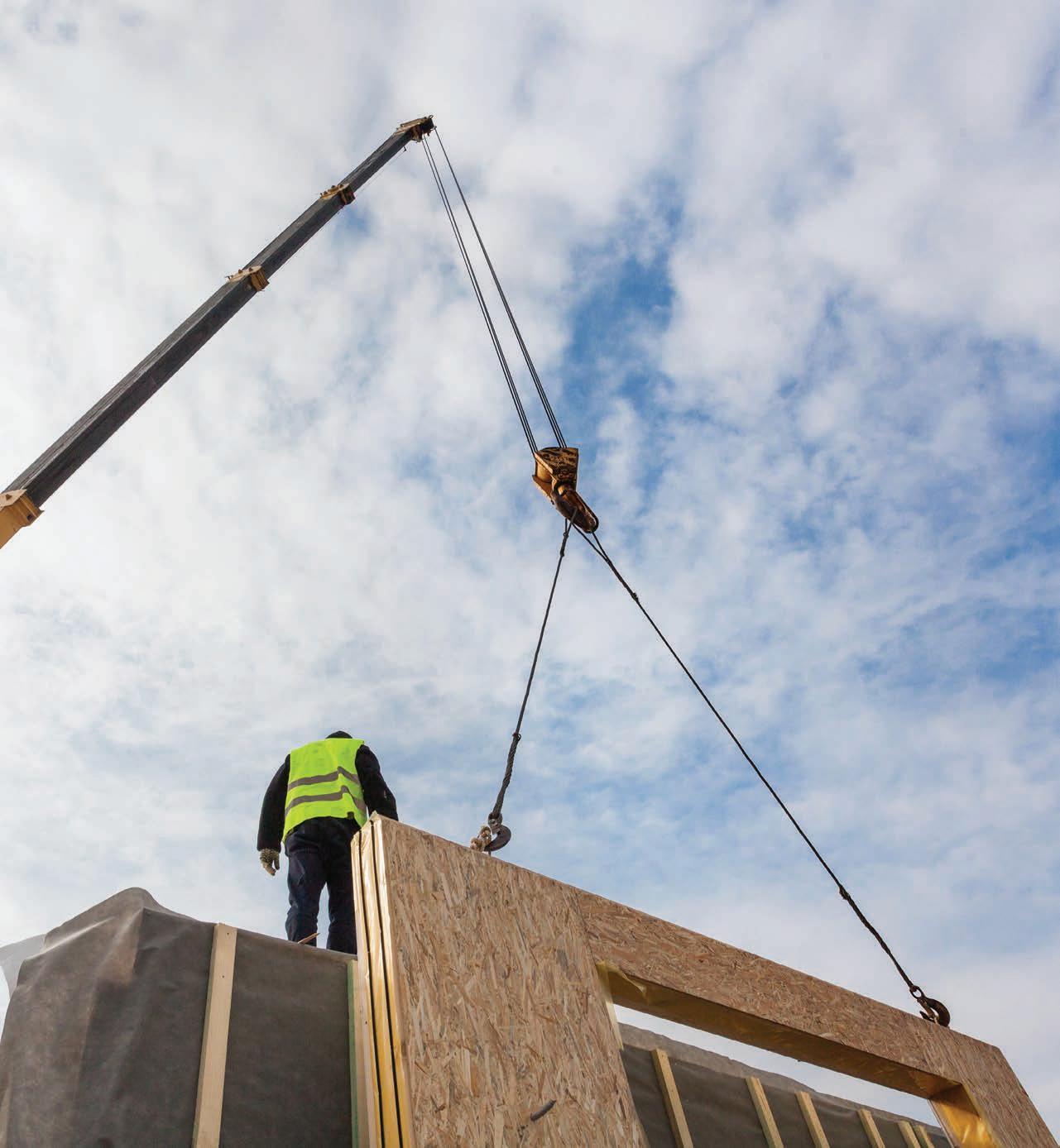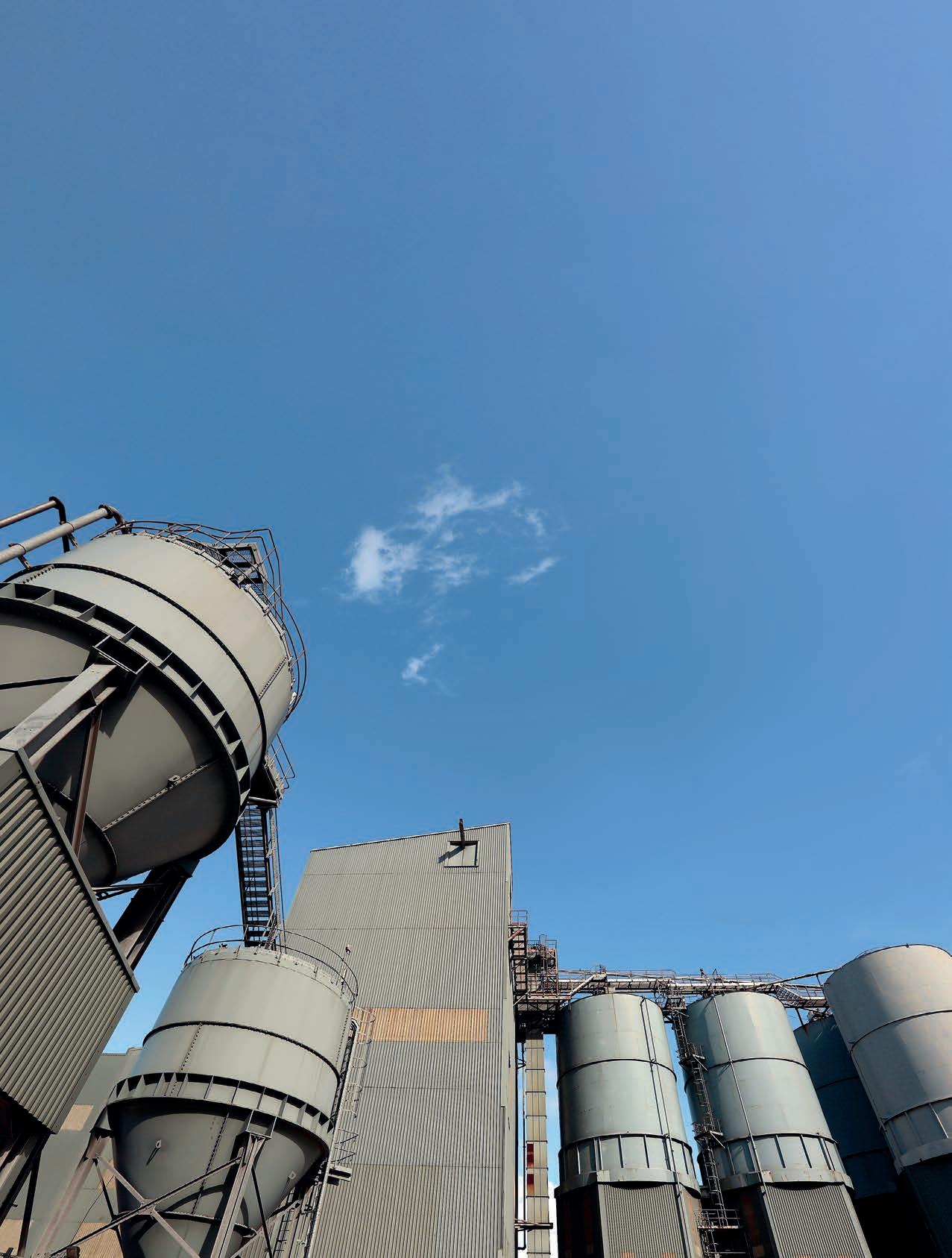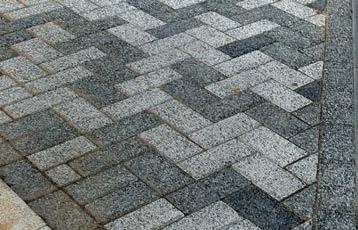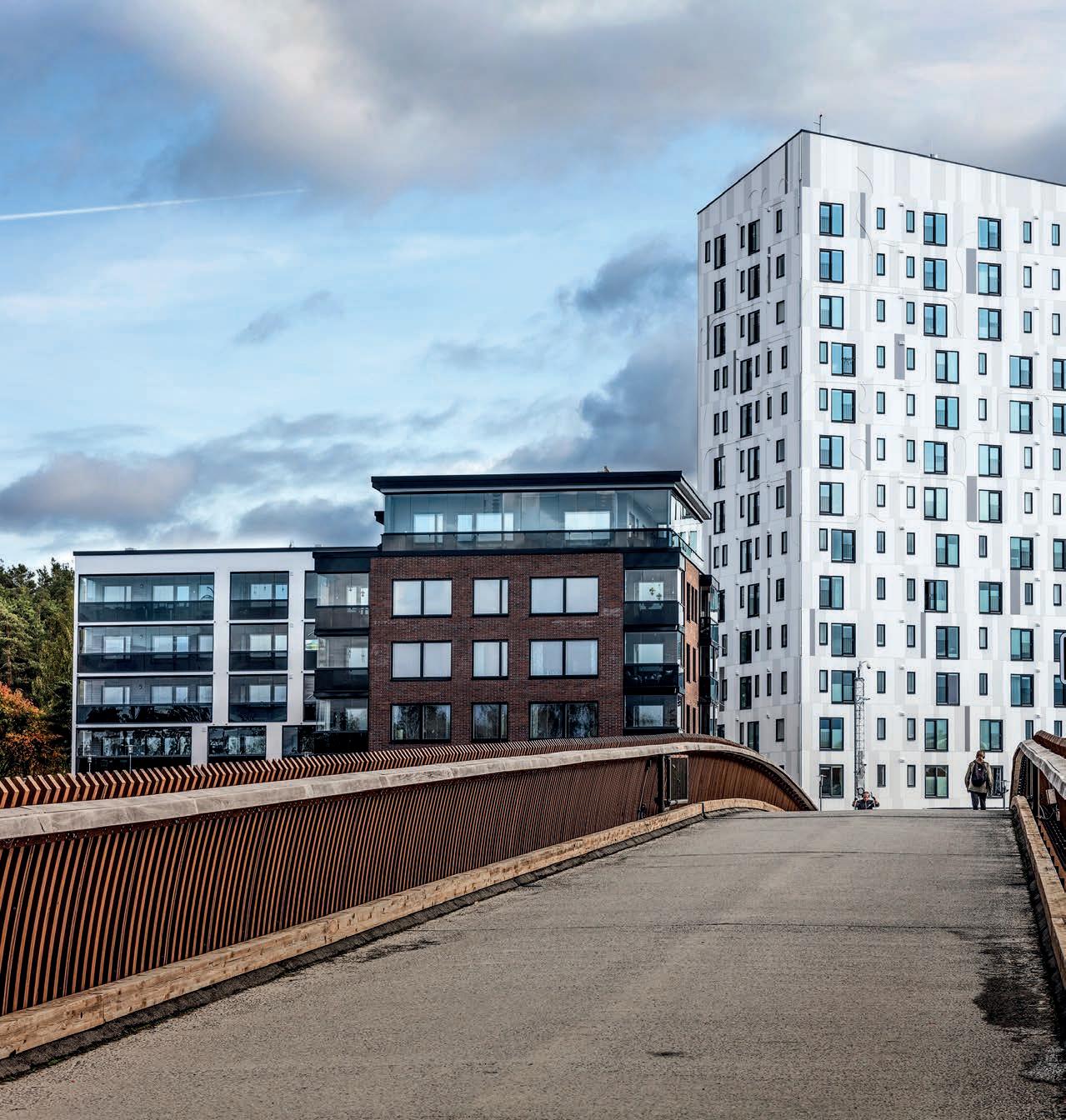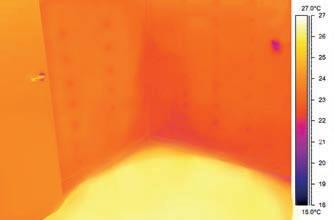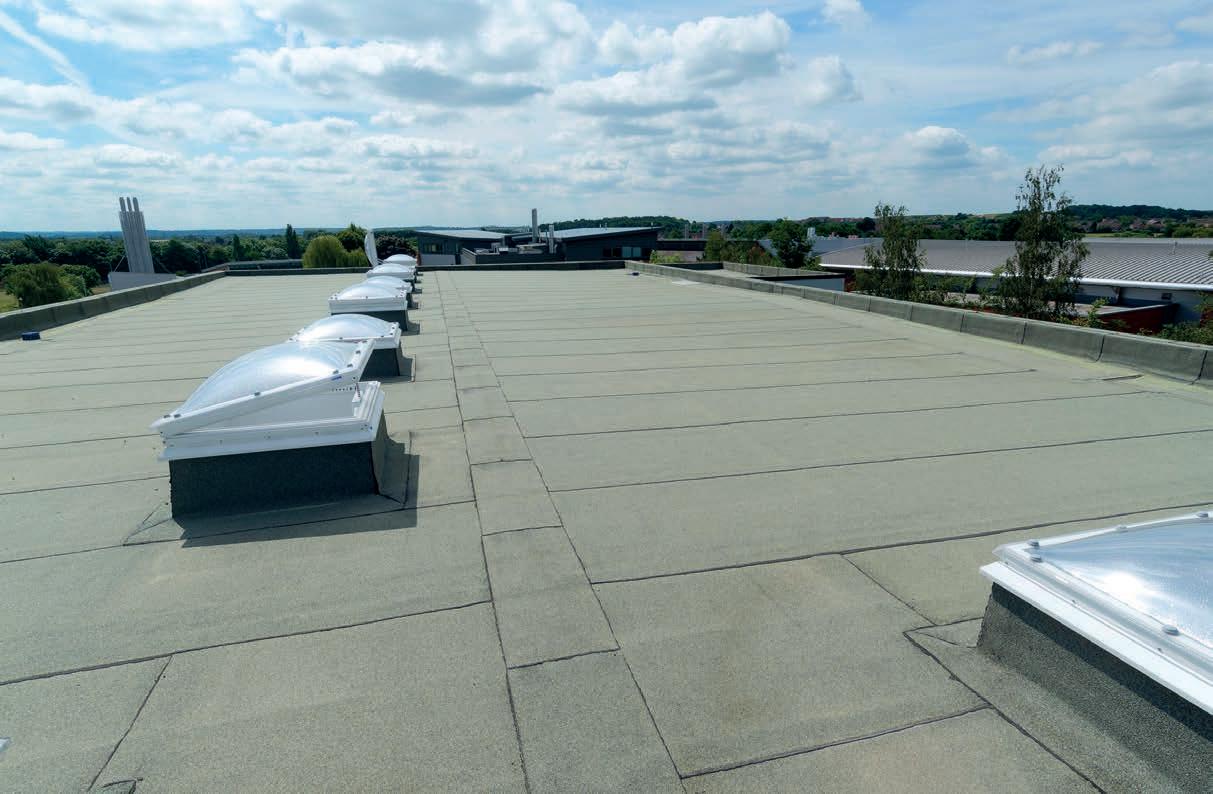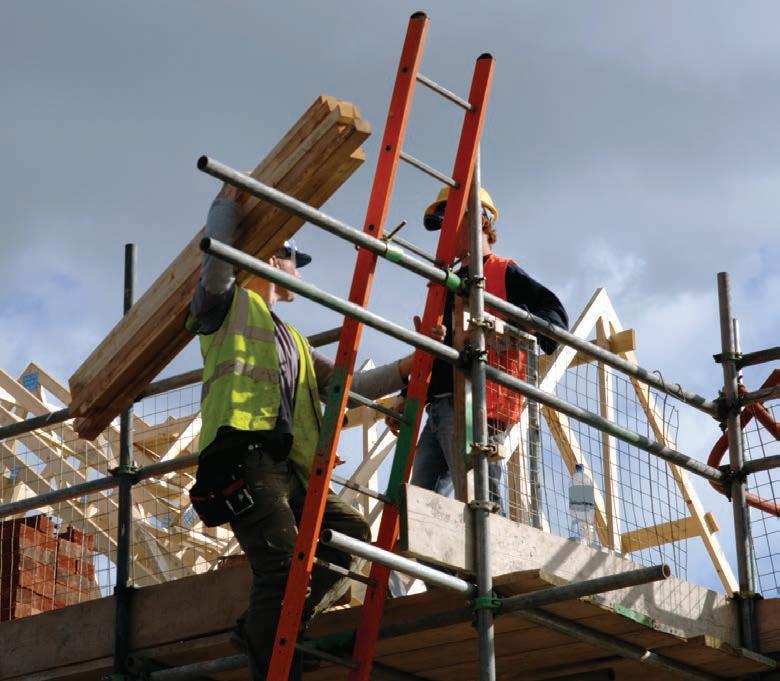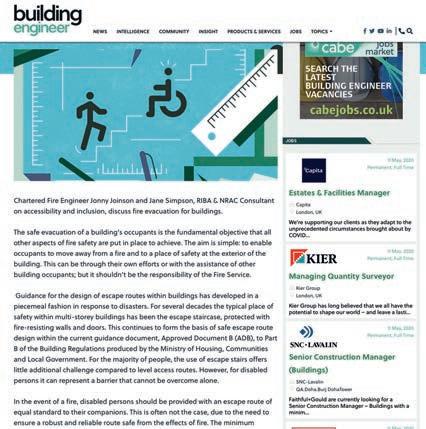INTELLIGENCE
Set for change
JUNE 2020
Nina Cardinal, National Technical Manager at Hanson Cement, discusses how cement and concrete can be more eco-friendly
BUILDING ENGINEER
32
G
lobally the cement industry alone accounts for 7% of CO2 emissions, while in the UK this figure is 1.5%. It is no secret that the production of CEM I Portland cement (PC) is energy intensive and produces CO2. It is for this reason that many manufacturers have invested heavily to improve the efficiency of the production process and increase the amount of alternative fuels used to power the kilns. Hanson Cement is taking part in a research project funded by the Department for Business, Energy and Industrial Strategy (BEIS). It is looking at the potential for hydrogen and plasma technology to reduce carbon emissions through switching away from fossil fuels, which could lead to cement and lime kilns operating with a net-zero carbon fuel mix. Its Ribblesdale cement works in Clitheroe, Lancashire, is the site of trials to demonstrate the zero-fossil fuel operation using hydrogen and biomass fuels in the cement kiln. The project’s results will be shared with wider industries to maximise the environmental benefit of the technology, which could save around two million tonnes of CO2 a year if implemented across the UK cement industry; equivalent to the annual emissions from 266,000 households and reducing UK greenhouse gas emissions by 0.6%. Cutting CO2 emissions and conserving natural resources are obvious priorities for everyone involved in the construction industry. In the UK, Hanson has already achieved a 30% reduction in CO2 emissions since 1990 across the business, and has set an ambitious new target of a 50% reduction by 2030.
GGBS In addition to the use of alternative fuels, the use of products to replace some of the cement content in concrete, grout and mortar is also helping to significantly reduce CO2 emissions. One of the most effective alternatives to PC is ground granulated blastfurnace slag (GGBS). There are environmental
globally the cement industry accounts for
11%
of CO2 emissions
32-33 HansonCement.indd 32
18/05/2020 15:17


